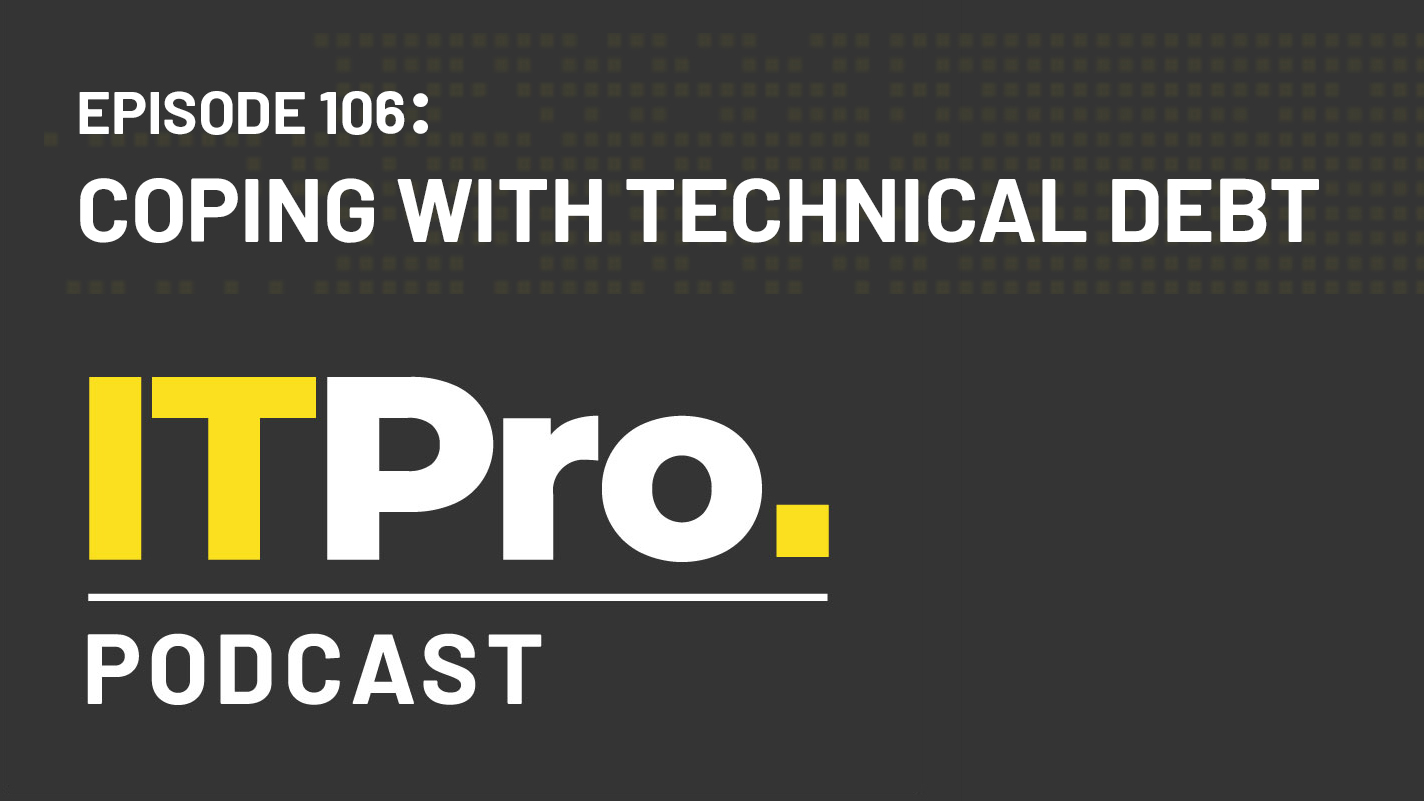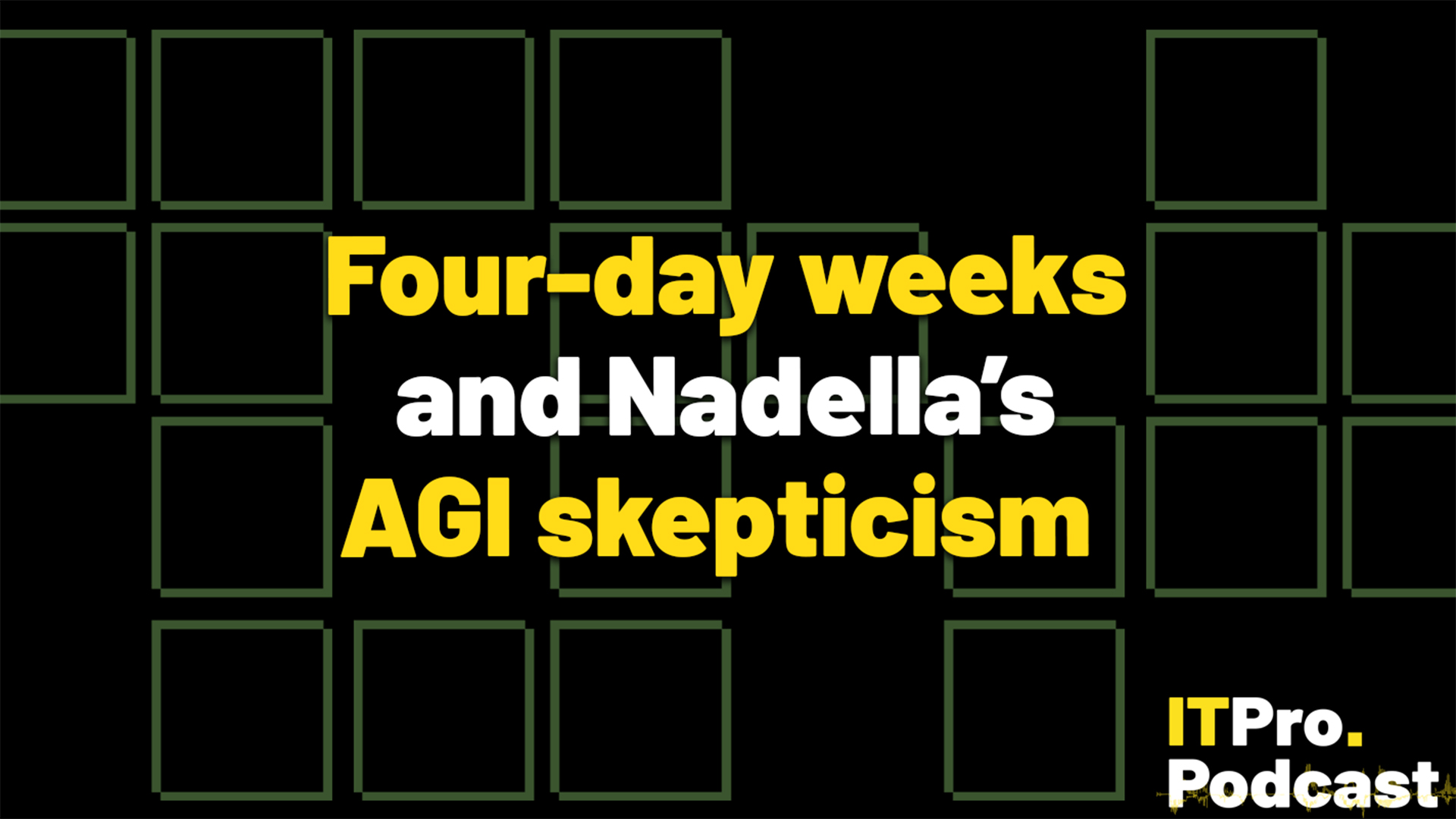The IT Pro Podcast: Coping with technical debt
Taking engineering shortcuts can be a path to future headaches - but it doesn't always have to be

Technical debt is one of the most dreaded concepts in enterprise IT; CIOs constantly struggle to stay on top of their technical debt and prevent it from accumulating out of control, and the knowledge that all of your shortcuts are going to catch up with you at some point is enough to keep any engineer awake at night.
However, technical debt doesn’t always have to be bad, and there are ways for organisations to manage its growth in a sustainable way. This week, we’re joined by Fastly’s chief product architect Sean Leach to explore why technical debt is so feared, the potential impact it can have, and even how organisations can use it to their advantage.
Highlights
“If you look across the board in the IT world, there's too few people working on too many projects with not enough time. And sometimes the bosses don't care about all those things, they just want it done. And so in some ways, they're forced to take on some technical debt to get their projects done on time and keep their jobs and to keep their livelihood and whatnot. So unfortunately, it is something that is a reality in the IT space.
I think sometimes people look at technical debt as all bad. And our founder, Artur Bergman, used to use this great line about technical debt that he would somewhat look at it like financial debt: sometimes you go into financial debt to finance your growth, to finance your expansion. And so it's not always a negative thing for an organisation, especially if you're trying to move fast, ship products, get the business off the ground and successful - you just know that you're going to have to take some on early, and then prepare to pay it down later.”
“I think sometimes people think of certain things as technical debt, which aren't technical debt. I think sometimes people think, ‘okay, I built this system in a not new and hip language and environment. I didn't build it with React with a Node backend or something like that. I had to build it in Java or C# or Go’, they think, ‘oh, that's technical debt’. But in reality, that tech is the most stable and should actually lower their stress over time. They're not having to keep up to date with the latest tech and trends... That is not technical debt. To me, that's actually smart engineering.”
Read the full transcript here.
Footnotes
- Businesses don't understand how security can be integrated into DevOps
- Developers welcome major overhaul to GitHub's support documentation
- How technical debt can damage business agility and competitiveness
- The IT Pro Podcast: There’s no such thing as obsolete tech
- IT Pro Panel: Why IT leaders need soft skills
- How to become a T-shaped employee
- IT Pro Panel: Why is patch management so difficult?
- The IT Pro Podcast: Keeping an eye on observability
- IT Pro Panel: Defining DevOps
- The driving forces behind DevOps today and how to integrate it into your business
- IT Pro Live: Scaling enterprise DevOps with a platform team approach
- CloudBees: DevOps initiatives increased during the pandemic
- What is DevSecOps and why is it important?
- IT Pro Panel: The CIO's guide to software
Subscribe
- Subscribe to The IT Pro Podcast on Apple Podcasts
- Subscribe to The IT Pro Podcast on Google Podcasts
- Subscribe to The IT Pro Podcast on Spotify
- Subscribe to the IT Pro newsletter
- Subscribe to IT Pro 20/20
Get the ITPro daily newsletter
Sign up today and you will receive a free copy of our Future Focus 2025 report - the leading guidance on AI, cybersecurity and other IT challenges as per 700+ senior executives
ITPro is a global business technology website providing the latest news, analysis, and business insight for IT decision-makers. Whether it's cyber security, cloud computing, IT infrastructure, or business strategy, we aim to equip leaders with the data they need to make informed IT investments.
For regular updates delivered to your inbox and social feeds, be sure to sign up to our daily newsletter and follow on us LinkedIn and Twitter.
-
 Bigger salaries, more burnout: Is the CISO role in crisis?
Bigger salaries, more burnout: Is the CISO role in crisis?In-depth CISOs are more stressed than ever before – but why is this and what can be done?
By Kate O'Flaherty Published
-
 Cheap cyber crime kits can be bought on the dark web for less than $25
Cheap cyber crime kits can be bought on the dark web for less than $25News Research from NordVPN shows phishing kits are now widely available on the dark web and via messaging apps like Telegram, and are often selling for less than $25.
By Emma Woollacott Published
-
 Four-day weeks and Nadella's AGI skepticism
Four-day weeks and Nadella's AGI skepticismITPro Podcast As the Microsoft chief casts doubt on ultra-advanced AI systems, a famous security blogger has fallen victim to a classic attack
By Rory Bathgate Published
-
 Creating space for women in tech
Creating space for women in techITPro Podcast Tech's huge gender divide can only be tackled with more welcoming, proactive sectoral efforts
By Rory Bathgate Published
-
 What is the EU's AI plan?
What is the EU's AI plan?ITPro Podcast As the EU moves to enable AI innovation, it could end up striking the perfect balance between regulation and public support – especially as US AI laws become more complex
By Rory Bathgate Published
-
 The trends we’re watching in 2025
The trends we’re watching in 2025AI for security and sovereign cloud could be top driving forces in the coming year
By Jane McCallion Published
-
 The 2024 that didn't happen
The 2024 that didn't happenThese are the megatrends of the year that failed to materialise
By Jane McCallion Published
-
 What DORA means for business
What DORA means for businessITPro Podcast Stringent requirements for third party monitoring and ongoing resilience testing could help put businesses on the best track for security
By Rory Bathgate Published
-
 Can the four-day week work for tech?
Can the four-day week work for tech?ITPro Podcast As the four-day week gives Icelandic workers a boost, we also look at whether AI coding is up to scratch – and if OpenAI can keep its funding momentum
By Rory Bathgate Published
-
 How to sell cyber security without the FUD
How to sell cyber security without the FUDITPro Podcast A trusted network of cybersecurity marketing professionals can help professionals cut through at the board level
By Rory Bathgate Published
